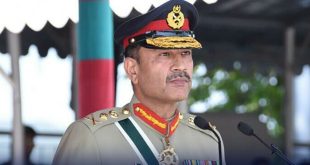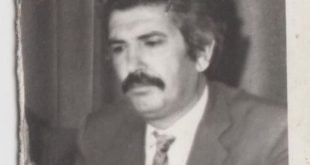By: Zakia Wardak, Advocate for peace, Entrepreneur and Architect
Mr. Haqqani and the members of the Afghan Taliban,
I want to thank you for your opinion editorial. This gave insight to your thoughts about the peace deal to the world and most importantly, the Afghan people. I do agree with your assessment – it is wise to embrace a potential opportunity for peace no matter how meager its chances for success. It is my hope as well that the bloodshed amongst Afghans ends.
Consensus amongst the Afghan people will help to slowly heal from the trauma inflicted by this war. Now is the time for Musalaha, reconciliation. Reconciliation is not just a physical process, but involves personal healing and, ultimately, forgiveness. That can only occur when Afghans do not face their weapons against one another.
What is of utmost importance to me and my fellow Afghan sisters is ‘where the rights of women that are granted by Islam – from the right to education to the right to work – are protected, and where merit is the basis for equal opportunity.’ We, the women of Afghanistan, welcome this dedication. I want to shed light on a growing concern that I have –portrayals of Afghan women often presented as passive victims of male power, who are simply unaware of their own oppression and must be told repeatedly that they’re oppressed; examples of empowered Afghan women are highlighted only when they stand against, you, the Afghan Taliban. I find this sad on many levels and this should be an embarrassment to all of us, because you have sisters, daughters and wives that shouldn’t be labeled.
Further, due to the above narratives come pervasive generalizations about Islam’s inherent oppression of Muslim women that are not only offensive but ultimately untrue, as both the Koran and historic precedence guarantees women’s rights.
Islam continues to hold tremendous political, social and religious currency in Afghan society today, that is undeniable. Knowing this, the best way to advance the human rights agenda in Afghanistan is to re-educate people to look at the “proper” role of women in society through a lens of Islamic jurisprudence, which affords women more rights than many traditional cultural norms. Specifically, we must look to the very first Muslim women who made live through the religion’s formative period. These women include a wealthy older businesswoman, the first martyr of the religion of Islam and a woman who went into battle to fight for her faith. These women should move from one-dimensional historical figures — whose historical identities are often defined by men — to examples of real women trying to make their way through a changing society. In showing these women as models that can be emulated today, we can fight back against the long-held stereotype of the docile, powerless Muslim woman. If we want to empower women today, we must deliver the women of our past from the footnotes of history, where men have left them to languish for too long.
Stereotypes are powerful – this is why negative stereotypes are so utterly damaging. The world would like us to fit into a box of what they think an Afghan woman should be – and when you don’t, it really disrupts their narrow worldview.
You mentioned that you did not choose this war and were forced to defend Afghanistan. The women of Afghanistan did not choose to live in fear, repression or danger. We have survived and strengthened our will to be respected and to be communicated with, to be treated as partners in rebuilding Afghan society and our moral fabric. This uninvited war has turned Afghanistan into a shadow matriarchal society. We support our families, we lead major decision-making and most importantly we are respected.
With this said, congratulations on your agreement. We, the women of Afghanistan, look forward to working with you on the path forward to reduce violence, secure international support for financial stability and developing our nation.
 Afghanistan Times
Afghanistan Times




